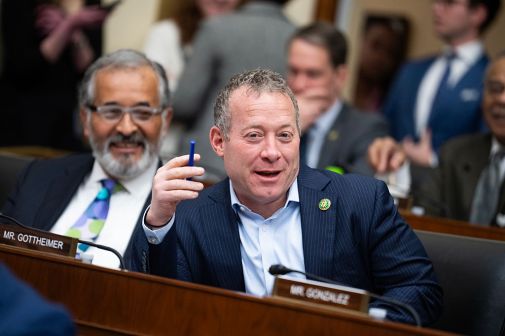Bipartisan House bill looks to bolster AI education with NSF scholarships

College students interested in careers in artificial intelligence and how it can be used in agriculture, education and advanced manufacturing could be eligible for National Science Foundation-awarded scholarships under a new bill from a bipartisan pair of House lawmakers.
The National Science Foundation Artificial Intelligence Education Act of 2024 from Reps. Vince Fong, R-Calif., and Andrea Salinas, D-Ore., would give NSF the ability to grant undergraduate and graduate scholarships to AI-interested students focused specifically on those three disciplines.
“These resources will be for college students, both in their undergraduate and graduate programs, but the bill will also encourage AI learning in K-12 students and will keep America at the forefront of this cutting-edge technology,” Fong said in a press release. “America is in a global competition, and we must prepare our local students to understand and develop the latest technologies to keep our nation strong and prosperous.”
The legislation would also create up to eight Centers of AI Excellence at community colleges and local technical schools, part of an overarching goal to promote and expand access to AI education and research.
“Artificial intelligence is much more than just chatbots and robots. In reality, AI technology has the potential to drive economic growth and transform our society for good,” Salinas said in the press release. “That’s why I’m proud to introduce a bipartisan bill to help more Americans participate in this technological revolution. Our legislation would expand research on responsible AI education and focus on community and technical colleges as training centers for our emerging AI workforce.”
The new bill amends the National Artificial Intelligence Initiative Act of 2020, which was introduced by Rep. Eddie Bernice Johnson, D-Texas, and co-sponsored by a bipartisan group of 16 House colleagues. That legislation, which came in the early days of the COVID-19 pandemic, was referred to the House Committee on Science, Space, and Technology but never advanced beyond that.
Building on that stalled legislation, the NSF AI Education Act from Fong and Salinas attempts to “bolster educational skills in AI through new learning initiatives and workforce training programs,” per the press release.
The new bill claims support from Code.org, a nonprofit and educational website for K-12 students interested in computer science, and ACT | The App Association.
“The NSF AI Education Act will enhance AI research and education through scholarships, Centers of Excellence, and collaboration between the National Institute of Standards and Technology (NIST) and NSF,” Morgan Reed, president of ACT | The App Association, said in a statement. “These bills will help ensure that AI education and resources are available to all businesses and innovators, regardless of size.”






